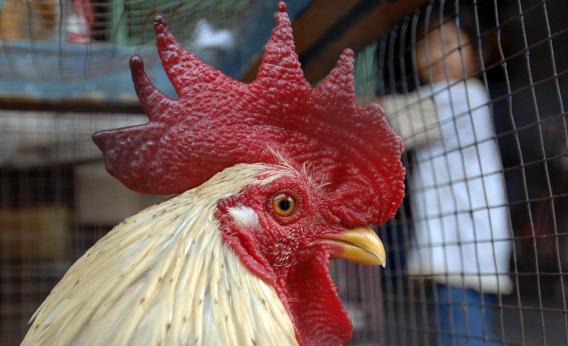Last month, researchers who tweaked the H5N1 virus, a highly contagious form of the avian flu, to spread between mammals were dinged by parts of the international scientific community, which believed the research could be used to create dangerous bioweapons. The National Science Advisory Board for Biosecurity asked researchers not to publish details about the experiment that could help others replicate the work. In the past few months, scientists and governments have hotly debated the merits of this research.
Now, those researchers have announced that they will pause their work for two months to allow for discussion about the benefits and dangers of such research. Thirty-nine scientists signed on to the announcement published simultaneously in Science and Nature magazines.
“We recognize that we and the rest of the scientific community need to clearly explain the benefits of this important research and the measures taken to minimize its possible risks,” they wrote. “We propose to do so in an international forum in which the scientific community comes together to discuss and debate these issues.”
But the 60-day moratorium has prompted another discussion: Will just two months be enough to settle on a workable solution? The World Health Organization will hold a meeting in February to discuss the pros and cons of H5N1 research, according to Science Insider, while the American Society of Microbiology and AAAS will also debate the topic at February meetings.
“The 60 days will likely not be adequate in terms of getting a truly workable international policy and applying that,” Michael Osterholm, a member of the National Science Advisory Board for Biosecurity, told Nature News. “I just don’t think that’s realistic.”
